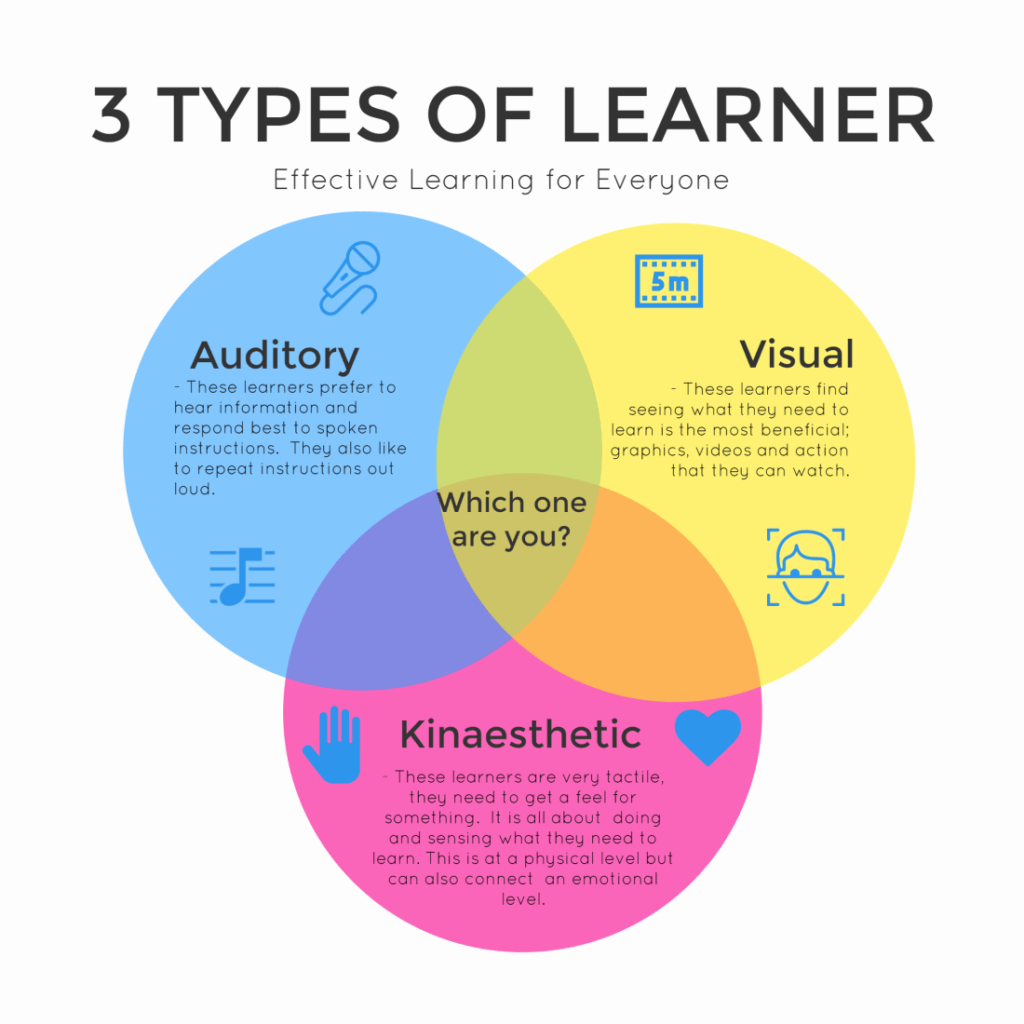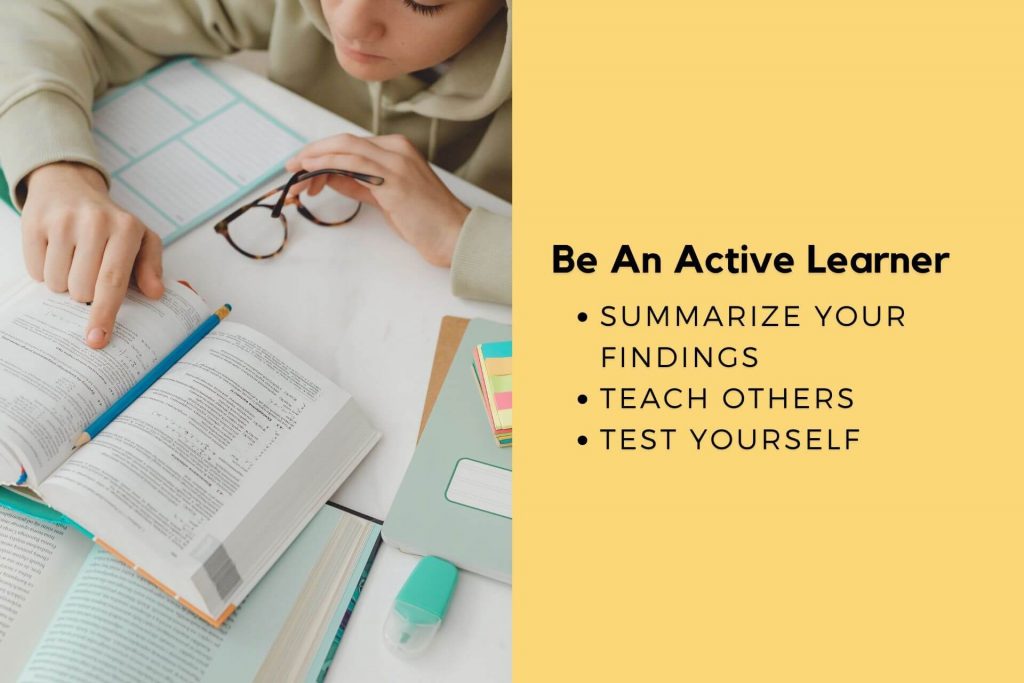Many students struggle a lot to effectively study. Some students might breeze through school like it’s nothing, while others find it challenging to find a system that works for them. No matter which side you belong to, figuring out what works for your studies will be a great help to you.
There is no perfect way to study that works for everyone. Each person is built differently and might have different methods that work for them. This is why you need to find out what suits you the most. Some students like to use different platforms like Studybay that help in their study process.
However, not everyone believes that some of these platforms are legit. That can be easily solved, though. You can check several Studybay reviews to find out about Studybay; and if it is real and not a scam. Whether you are in high school, college, or grad school, this checklist will guide you through various strategies that can work for your studies.
1. Know Your Learning Style
One of the first things you need to do when figuring out what works for your studies is to figure out your learning style. You need to figure out if you are someone who remembers whatever they see or if you need extra time studying to remember.
People are typically divided into visual, auditory, kinesthetic, and reading categories. If you are the visual type, then you probably learn easily with pictures. Auditory types learn better when listening to lectures or with the help of music. The kinesthetics learn better through actions, while readers learn best through reading and taking notes.

Once you know what style you fall under, it will be much easier to customize your study techniques. This will help make studying more interesting for you since it aligns with your natural interests.
2. Set Up Your Ideal Study Space
The kind of environment you study in can be a major influence on how well you study. Some people need complete silence to get the best out of their study time, while others like a bit of background noise. Make sure you set up your study space according to whichever works best for you.
Some of the things you should consider when setting up your study space include:
- Lighting
Natural light works best for studying, but you can also introduce a well-lit desk lamp when studying late at night.
- Comfort
A nice, comfortable chair and desk are essential for your study space. Hunching over and a crowded space can make it hard for you to focus.
- Noise Level
Figure out whether you need total silence, white noise, or a bit of background music while you study.
3. Manage Your Time
Time management is an essential aspect of effective study. Sometimes, having a lot of tasks to do, like assignments and classes, can seem scary. However, if you manage your time well, it can make a huge difference in the effectiveness of your studies. Some time management strategies you can try out include:
- The Pomodoro Technique
This is a simple method. All you need to do is study for 25 minutes, take a 5-minute break, and repeat the sequence. After four cycles of this, take a longer break to refresh your mind.
- Time Blocking
This tactic involves planning out your day in chunks. Dedicate specific hours to classes, homework, and studying.
You can use a physical notebook or digital app to help you stay aware of your deadlines and tasks.
4. Use Technology
In this age, there are many apps and tools that can help you with your studies. You can review different platforms that help you organize your writing, schedule, improve your focus, and master topics. They can be very powerful tools when utilized wisely. Some of these legal tools you can use include:
- Productivity Apps
Productivity apps help you make the best out of your available time. They help you organize tasks and keep track of deadlines. You can also use them to collaborate during group projects or study together.
- Focus Apps
There are several apps that help to minimize distractions and improve your focus when studying.
- Study Apps
There are many platforms that can help you specifically with your studies. These tools help to reduce the burden of studying and reinforce your knowledge. Most importantly – be sure to check reviews on them so you can use the best apps initially.
eLearning Content Software
If you need a more structured way to study, eLearning content software can help. These tools offer interactive lessons, quizzes, and multimedia features that make learning more engaging and effective. Many also track progress, helping you stay on top of your studies and review difficult topics when needed. Whether you’re preparing for exams or learning a new subject, using eLearning content software can make studying more organized and efficient.
5. Be An Active Learner
Not everyone can grab everything they need through passive reading or listening. Engaging your study materials actively can help you remember what you have studied better. That means you have to find ways to interact with the information gained from studying. Here’s how you can do that:
- Summarize Your Findings
After going through your notes, try summarizing the key points from what you’ve read on your own. This will help the brain retain the information better.
- Teach Others
Explaining what you’ve learned to someone else can help to reinforce the knowledge you already have. If you can teach it well enough, that means you understand it.
- Test Yourself
You can also try out past exam questions and quizzes or create your own using tools like ProProfs Quiz Maker to test your knowledge on what you’ve learned.

6. Take Breaks
It is very easy to wear yourself out when you study for too long. Many students find themselves skipping breaks because they want to cover more and save time. However, taking breaks is an important part of the study process. Research even shows that regular breaks help to improve focus and productivity.
Make sure you give your brain some time to rest after long hours of studying. Take a short walk, or drink a cup of tea to help you recharge before you get back to studying. Staying healthy is part of the bigger picture if you want to stay productive.
7. Check In On Study Habits
Finding the right study pattern isn’t all there is to productivity. You also need to regularly check in on how things are going. The reason for this is that your study needs and workload can change during the course of the year, and what worked for you before might not be as effective anymore.
Ask yourself if you are hitting the academic goals that you have set for yourself. If not, think of how you can adjust. Also, monitor your stress levels so you don’t get overwhelmed by your schedule. You should also make sure you remember everything you’ve been studying. Stay flexible with your study habits.
8. Ask For Help When Needed
There is no shame in asking for help when you need it. If a subject is too tricky for you, or you have a scary deadline, you can always reach out to others around you for support. Places you can get the help you need include:
- Peer Groups
Study groups and your peers are always a great way to help when you are in a bind or simply need motivation.
- Teachers
Most of the time, your professors and teaching assistants are there to help you. You can simply approach them if you need extra help with a subject.
- Online Platforms
If you are stuck on an assignment or project, you can easily use platforms like Studybay to get professional help. This can help organize your work or simply polish it.
Conclusion
Figuring out what works for your studies is usually not something you figure out overnight. It is a process that takes time and patience on your part. Getting to know your learning style, organizing your time, and creating a good study environment are ways that can help you discover your path.
Remember to stay flexible with your study patterns, and don’t hesitate to ask for help when you need it.


